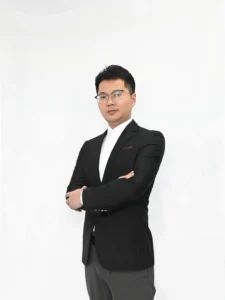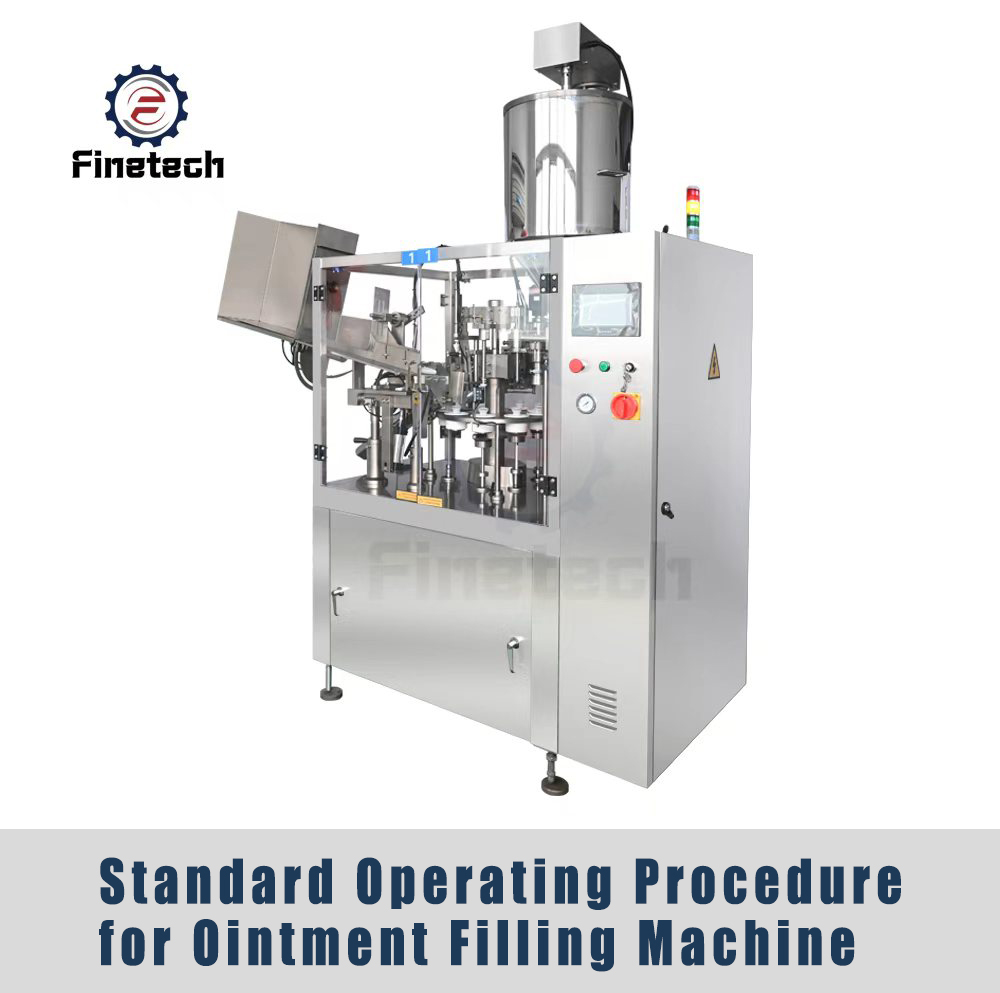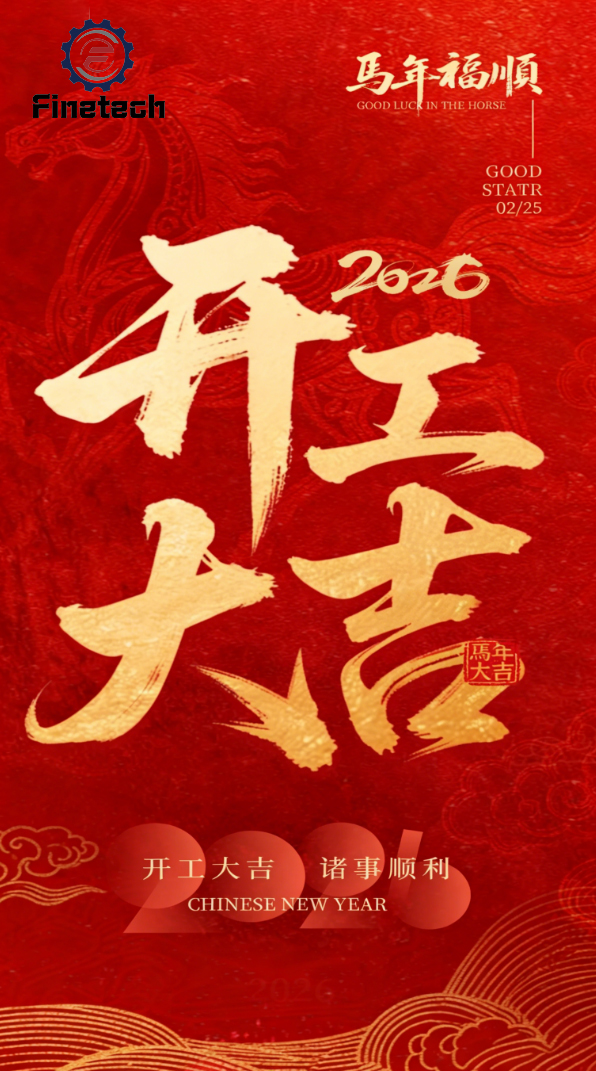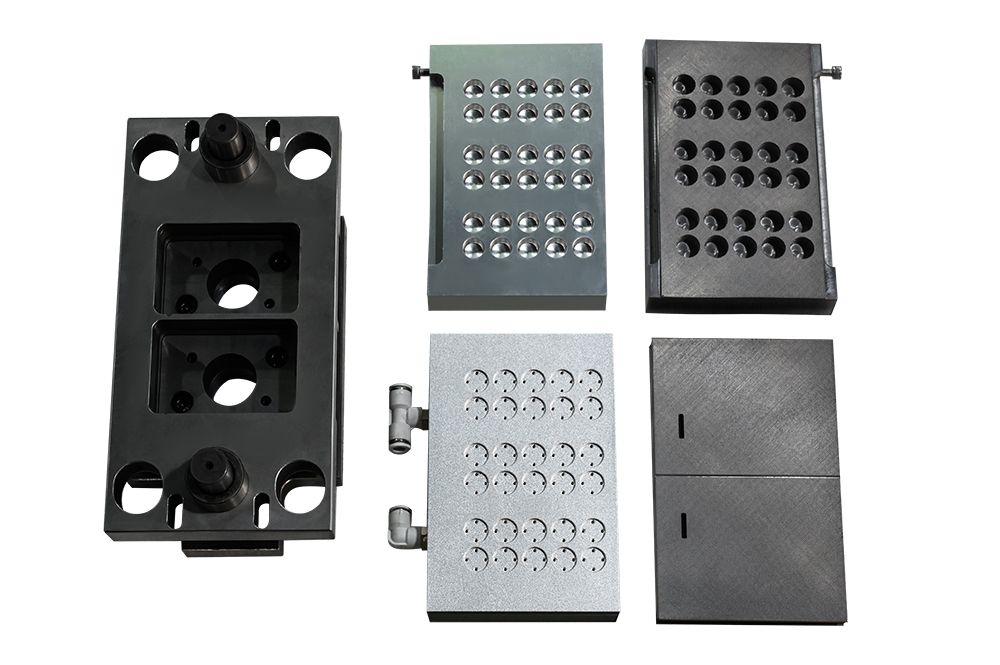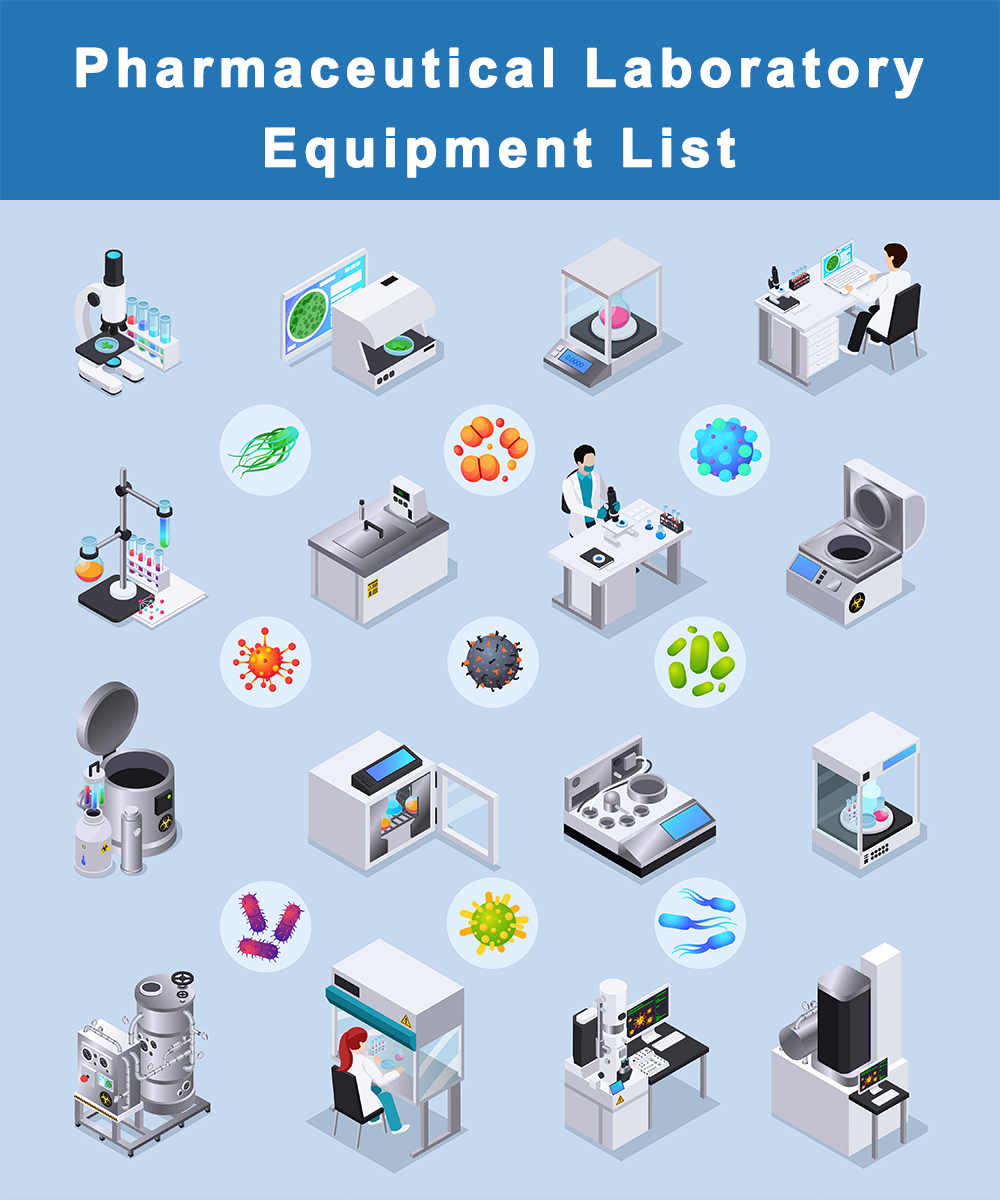Making medicine in tablet form requires special, advanced machines. Many companies worldwide design and build these tablet press machines. These manufacturers play a key role in the pharmaceutical industry.

| Company Name | Year Founded | Country |
| Fette Compacting | 1908 | Germany |
| KORSCH AG | 1919 | Germany |
| GEA Group | 1920 | Germany |
| IMA Active (IMA S.p.A.) | 1961 | Italy |
| Syntegon Technology | 1969 | Germany |
| ACG | 1961 | India |
| Romaco Kilian | 1875 | Germany |
| Natoli Engineering Company | 1973 | USA |
| Elizabeth-Hata International | 1984 | USA |
| Cadmach Machinery | 1967 | India |
Fette Compacting
Year Founded: 1908
Main Products:
- FE Series tablet presses.
- i-Series tablet presses.
- P-Series tablet presses.
- Die table segments.
- Force feeders.
- Containment systems.
- Process equipment for tableting.
- SmartInterface technology.

Fette Compacting is in Schwarzenbek, Germany. This company is known for making tablet press machines. It has a history of over 100 years.
The company started in 1908. It grew to be a top company worldwide for tablet making tools. Fette Compacting has put over 6,000 machines in places around the globe. More than 720 of these machines are in China.
Fette Compacting is part of the LMT Group. The LMT Group is a family-owned international company. This group builds precision tools and special machines.
In 1948, Fette Compacting made a big change. It started making its respected line of tablet compression machines. This was an important step.
Later, in 1982, the company created the first tablet press machine run by a computer. This was a major new idea. The company kept making it better over the years.
Fette Compacting focuses on three main things. These are cutting production costs, making things safer, and boosting efficiency. This focus helps the company keep its products at a very high standard.
The company’s tablet presses come in three main types. Each type is built for different production needs. The FE Series is very flexible. This makes it good for companies needing machines for many tablet formulas.
The i-Series machines are also available. The “i” in i-Series means innovation and easy use. These machines have a newer dust-tight design. They also have digital connection features.
The P-Series aims to give precise, quality machines. These machines do not cost too much. They also keep the tablet-making process safe.
Fette Compacting’s tablet presses can make many tablets. Some make 2,000 an hour. Others make over 1.5 million tablets an hour. The amount depends on the model.
Heavy-duty models like the FE75, 3200i, and P3030 make many tablets. They can produce over one to one-and-a-half million tablets an hour.
Smaller machines are for smaller batches. Models like the FE35, F10i, and P1010 make fewer tablets. They produce between 2,000 and 300,000 tablets in an hour.
The company shows its focus on new ideas with SmartInterface. This is an application. It lets users watch tablet press production live using mobile devices.
Fette Compacting has offices and service centers worldwide. Its operations in China began in 2004. These grew from 20 workers to holding a large market share in China.
Recently, the company launched its New Generation p Series Tablet Presses. These include the F30p and F10p models. This shows a continued effort to solve industry problems.
Fette Compacting is a member of Excellence United. This is a group of machine engineering companies. Fette Compacting keeps influencing standards for tablet compression technology.
KORSCH AG
Year Founded: 1919
Main Products:
- XP 1 Single Punch Press.
- STYL’One Nano and Evo Compaction Simulators.
- X 3 Single-Sided Rotary Press.
- X 5 Single-Sided Tablet Press.
- XL 400 MFP Multi-Layer Press.
- XL 800 Double-Sided Press.
- TRP 700 and TRP 900 Heavy-Duty Presses.
- XT 600 HD Double Rotary Press.
KORSCH AG is in Berlin, Germany. The company has made top-quality tablet compression machines there since 1919. Fritz Kilian started the company.

The company was first called “Fabrik pharmazeutischer Maschinen und Geräthschaften.” It has stayed in Berlin for over 100 years. This shows its long history and new ideas. KORSCH is a family-owned company. It is one of the most respected names for tablet-making machines.
KORSCH has always focused on tablet compression technology. This is its main skill. This strong focus has led to a wide and advanced range of products.
The company promises “Made in Germany” quality. This is clear in every machine made in its Berlin plant. Product creation, making machines, sales, and support all happen there. This serves customers all over the world.
KORSCH makes over 12 different types of tablet presses. These range from the XP 1 Single Punch Press for research. They also make the TRP 900 Five-Layer Rotary Press for constant use.
KORSCH’s new ideas are shown by the XL 400 MFP. This machine is known as the only one that can make many tablet types. It can make single-layer, bi-layer, tri-layer, and core-coated tablets on one machine.
KORSCH’s reach goes far past Berlin. The company started a U.S. branch in Boston in 1994. It moved into high containment solutions in 1999. KORSCH also made its Berlin campus bigger in 2020.
In December 2022, KORSCH bought MEDELPHARM in Lyon, France. This added new compaction simulator technology to its products. KORSCH now has branches in Singapore, Mumbai, and Hyderabad.
Five generations of workers have helped KORSCH become a leader. The machines use modern technology. This includes Pharma 4.0 systems and advanced control screens.
KORSCH’s newest inventions include the X 5 tablet press. This machine makes many more single-sided tablets. It is still flexible and quick to change over. Over 80% of its machines are sent to other countries. KORSCH keeps shaping the future of tablet making.
GEA Group
Year Founded: 1920
Main Products:
- NexGen Press® tablet press range.
- MODUL tablet presses with ECM technology.
- PERFORMA tablet press line.
- Double-sided rotary presses.
- Containment tablet presses.
- Granulation equipment.
- Coating systems.
- Complete oral solid dosage production lines.
GEA Group is based in Düsseldorf, Germany. It is a very large supplier of systems. These systems are for the food, drink, and drug industries.
The company’s drug division is GEA Pharma & Healthcare. It started in 1920. Otto Happel founded it to make equipment that removes dust. The main company’s history goes back to 1881.

GEA has long been a trusted supplier of tableting technology. The company tries to innovate and improve the tablet-making process. This effort shows in the design of its rotary tablet presses.
Its research teams work on making machines more productive. They also work on making them more flexible. They aim to improve tablet quality and keep operators safe. GEA has installed over 10,000 plants worldwide.
The company’s tablet presses have changed a lot. This led to the NexGen Press® range. This new line combines the best of MODUL and PERFORMA presses. It works for many tableting uses.
The MODUL series has an Exchangeable Compression Module (ECM). The ECM holds all parts that touch the product. It is separate from the machine. This allows for clean removal and means the press does not need cleaning.
GEA’s tablet presses are for different uses. These include research, small productions, and large commercial manufacturing. The machines can make single-layer and bi-layer tablets. Some models handle MUPS tablets.
The company’s work goes beyond tablet presses. It includes full production lines. These lines are for powder processing, oral drugs, injectable drugs, and more.
GEA is listed on German stock markets. It employs over 18,000 people in five divisions. These divisions are in over 60 countries.
GEA’s drug solutions focus on rules, cost-effectiveness, and quality. GEA technology is known as reliable and flexible. The company offers equipment, training, and technical help.
IMA Active (IMA S.p.A.)
Year Founded: 1961
Main Products:
- PREXIMA tablet press series (80, 300, 700 models).
- DOMINA highly automated tablet press.
- COMPRIMA tablet press line.
- PDP series for stock cubes.
- Granulation equipment.
- Capsule filling machines.
- Coating systems.
- Handling and washing systems.
IMA Active is in Ozzano dell’Emilia, near Bologna, Italy. It is the part of IMA Group that handles solid dose processing. IMA S.p.A. was started in 1961.

IMA Group is a world leader. It designs and makes automatic machines. These machines process and package drugs, cosmetics, food, tea, and coffee. IMA has over 50 years of experience. It has 16 factories in 6 countries. Over 2,400 employees work for the drug industry.
IMA Active focuses on every step of making solid dose drugs. This includes granulation, tableting, and filling capsules. It also includes checking weight, coating, and handling.
The division is a partner for drug makers. It provides single machines and complete production lines. IMA Active has thousands of machines installed around the world. It has deep knowledge of working with strong drug ingredients (HAPI).
The company’s tablet presses are mainly in the PREXIMA series. This series has three models for different production amounts. PREXIMA machines use IMA’s knowledge of the field. They have an Italian design and perform at a top level.
PREXIMA is based on the COMPRIMA idea. It ensures processing and mechanical areas are separate. This uses special seals and guards. It is very reliable, with strong compression forces.
IMA Active’s most advanced machine is the DOMINA tablet press. It shows its best automation abilities. DOMINA uses many servomotors. This means operators hardly need to do anything.
The DOMINA machine includes MAX. MAX is the new company-wide screen for operators. It helps operators work better and respond faster. For special uses, IMA Active offers the PDP series. This series presses stock cubes at high speeds.
The company has modern labs in Italy and the USA. These labs offer help with testing products. In 2021, IMA opened a Process Development Laboratory in Shirwal, India. This lab is for working together on product development.
IMA Active is part of the larger IMA Group. This group works in over 80 countries. It has 53 manufacturing sites and 6,200 employees. IMA Active gets help from these global resources.
Syntegon Technology
Year Founded: 1969
Main Products:
- TPR 200, 500, and 700 tablet press series.
- FlexiTab single station press.
- Xpress series tablet presses.
- Manesty heritage equipment.
- Sepion tablet coater.
- Complete oral solid dosage systems.
- Continuous manufacturing solutions.
- Containment technology.
Syntegon Technology is in Waiblingen, Germany. It is a top global provider of process and packaging technology. This technology is for the drug and food industries.

The company was founded in 1969 as Robert Bosch Apparatebau GmbH. It was known as Bosch Packaging Technology until 2020. Then, CVC Capital Partners bought it. Syntegon’s experience goes back over 160 years. This includes the history of companies like Manesty Ltd.
Syntegon’s tablet press history is rich because it bought Manesty Ltd in 2011. Manesty was a main maker of high-speed rotary press machines since the 1960s. Manesty’s new ideas included the Express tablet press series and the Unipress tablet press. The Manesty Xpress series turned into the current TPR series.
Syntegon’s current tablet presses are mainly the TPR series. These are designed to be flexible and efficient for making drugs. The FlexiTab single station press is for research and small production. It can make up to 900 tablets an hour.
The TPR 200 is a cost-effective choice for medium production. It makes up to 230,500 tablets an hour. The TPR 500 can make over 400,000 tablets an hour. The top model, TPR 700, can produce over 1,150,000 tablets an hour. It has special features for this.
The company’s commitment to new ideas goes beyond normal tablet pressing. Syntegon offers advanced features like torque drive technology. It also has better data collection systems and strong compression force. Its machines can make different tablet types.
Syntegon has also adopted continuous manufacturing technologies. This places it at the front of changes in the drug industry.
Syntegon has 6,900 employees at 47 locations in more than 20 countries. The company has installed over 6,600 machines globally. This shows the drug industry trusts its technology.
Syntegon aims to provide smart and sustainable solutions. It focuses on technologies that use less energy. It also wants to reduce material waste and make processes more efficient. Its service network ensures customers get full support.
ACG
Year Founded: 1961
Main Products:
- PROTAB 300, 700 tablet presses.
- LEGACY 6100 tablet press.
- Empty hard capsules (gelatin and HPMC).
- Films and foils packaging materials.
- Capsule filling equipment.
- Inspection systems.
- Track and trace solutions.
- Process development equipment.
ACG is based in Mumbai, India. Brothers Ajit Singh and Jasjit Singh started the company in 1961. They made empty hard capsules for Indian drug companies.

ACG began as Associated Capsules Pvt Ltd. It has grown into a global company offering complete drug manufacturing solutions. Today, ACG works in 138 countries on six continents. It is the biggest single supplier to solid-dosage drug makers worldwide.
ACG started by making capsules. It is still the world’s second-biggest maker of empty hard capsules. But the company has widened its focus over sixty years. ACG now works in almost every part of making oral drugs.
It does this through four main business areas. These are ACG Capsules, ACG Films & Foils, ACG Engineering, and ACG Inspection. This combined approach allows ACG to offer good production solutions and service.
ACG’s tablet presses are part of ACG Engineering. This division provides a full line of equipment for making oral drugs. The PROTAB 300 is for research and small production. It can make 1,000 to 200,000 tablets per hour.
The PROTAB 700 has many station choices. It makes over 250,000 tablets per hour with bi-layer ability. It makes over 800,000 with a monolayer setup. It also has a quick changeover time.
The LEGACY 6100 can make up to 400,000 tablets per hour. It has a flexible design. It can install a multi-unit particulate system (MUPS). MUPS puts different ingredients together in one tablet.
The company’s dedication to new ideas is clear from its research sites. In 1971, ACG set up the SciTech Centre in Mumbai. This is a large research place recognized by the government.
In February 2021, ACG opened a Process Development Laboratory in Shirwal, India. Here, customers can work with ACG experts on process development. The company’s engineering teams are in multiple countries.
ACG’s worldwide operations include 13 companies. It has branches in China, the USA, Indonesia, Brazil, and Europe. The company has about 3,200 employees. They work to provide top-level technology.
Important purchases include the Lukaps capsule factory in Croatia in 2007. ACG also bought Nova Nordeplast in Brazil in 2017. With over 20,000 machines set up around the world, ACG is a trusted partner for drug makers.
Romaco Kilian
Year Founded: 1875
Main Products:
- KTP 1X R&D tablet press.
- KTP 180X pilot-scale press.
- KTP 420X high-speed press.
- K-Series production presses.
- S-Series tablet presses (including S710 Prime).
- E-Series tablet presses.
- Continuous Weight Control (CWC) systems.
- Specialty turret designs.
Romaco Kilian is in Cologne, Germany. Fritz Kilian first started “Fabrik pharmazeutischer Maschinen und Gerätschaften” in Berlin in 1875. Kilian’s work over the next 50 years created the basis for industrial tablet-making.

After World War II, the Berlin factory closed. This was a major change. Former workers and the Kilian family rebuilt the company in Cologne. It continues its success there as a top maker of tablet presses. Since 2013, Kilian has been part of the Romaco Group.
Romaco Kilian has been at the front of tablet technology for almost 150 years. It will celebrate its 150th anniversary in 2025. The company specializes in drug tablet presses. These presses make standard and special items in different sizes and shapes. This includes multi-layer tablets and micro tablets.
Romaco Kilian offers solutions for any compression problem. This applies to drug, industrial, or food uses. This is backed by deep knowledge gained over a long time.
The company’s tablet presses range from research machines to those for high-volume production. The KTP 1X is the newest type of R&D tablet press. It can press many tablet formats with strong compression forces.
The KTP 420X series includes new high-speed tablet presses. They have patented Continuous Weight Control (CWC) technology. This allows weight measurement during production without destroying tablets. This machine can press up to 360,000 tablets an hour.
For making very large amounts, the S710 Prime tablet press is a top model. It can produce up to 1.02 million tablets per hour. This machine shows Romaco Kilian’s commitment to high performance and dependability.
The company’s machines have many patented new ideas. These include wear-free motors and long-lasting compression rollers. They also have special punch bellows that keep lubricants off the tablets.
Kilian is part of the Romaco Group. This group handles the whole process chain for making drugs. Romaco has six production sites and nine sales centers worldwide. Over 850 experts help customers. They have bought over 12,000 machines in many countries. Romaco Kilian’s technology and support ensure its presses work well.
Natoli Engineering Company
Year Founded: 1973
Main Products:
- Tablet compression tooling (punches and dies).
- NP-RD10A, NP-RD30 R&D tablet presses.
- Production tablet presses.
- NCF-45 Capsule Filling Machine.
- Tablet press replacement parts and turrets.
- Tool management software (TM-II).
- Laser Vision System (LVS).
- TabletCAD design software.
Natoli Engineering Company is in St. Charles, Missouri, USA. Carmelo Natoli founded the company there in 1973. Natoli’s site includes offices, manufacturing, training, and lab facilities.

The company grew based on its founding ideas. These were to make and deliver the best tablet compression tools. It aimed for fair prices and great customer service. Natoli has stuck to these principles for over 50 years. It is a global leader in making tablet press tools.
Natoli is famous for making high-quality punches and dies. But the company has grown beyond just tooling. It now provides complete solutions for the tablet compression industry.
Its modern manufacturing facilities allow for very precise engineering. This makes tooling last as long as possible. Natoli makes many types of punches and dies. These support almost any tablet press machine.
Natoli’s tablet presses include models for research and production. All are designed and made in the USA. The NP-RD10A benchtop press is for developing formulas and small batches. The NP-RD30 R&D press acts like a production press for studies.
The company’s production presses range from medium-output machines to heavy-duty ones. All Natoli presses use the company’s own AIM™ software. This software is for process monitoring and control.
Beyond making equipment, Natoli is a leader in technical support and education. The company runs the Natoli Institute for Pharmaceutical Research & Development (NIPRD). It also partnered with the Bombay College of Pharmacy in India. They opened a research and training lab there.
Natoli offers training programs. These include how to operate tablet presses and manage tooling. Respected experts teach these programs.
Through its different divisions, Natoli provides many products and services. The company keeps over 300,000 replacement part numbers in stock. This covers parts for most major tablet press brands.
Natoli also publishes the Tablet Compression Accessories Catalog. This catalog features hundreds of products for equipment care. Natoli has operations worldwide and continues to grow.
Elizabeth-Hata International
Year Founded: 1954 (Elizabeth), 1984 (Elizabeth-Hata partnership)
Main Products:
- HT-X Series tablet presses.
- CVX Series interchangeable turret presses.
- Eliza-Press line.
- HATA press line.
- Tablet compression tooling.
- Blister pack tooling.
- Tablet press control systems.
- Press replacement parts and turrets.
Elizabeth-Hata International is in North Huntingdon, Pennsylvania, USA. It combines American and Japanese tablet press technology. The story began in 1954. Melvin B. Peterson founded Elizabeth Carbide Die Co. Inc. then.

Elizabeth Carbide started as a small shop. It was a pioneer. It introduced carbide punches and dies to the U.S. drug industry. This made the company an innovator in tooling technology.
The key partnership with Hata Iron Works of Kyoto, Japan, formed in 1984. This created Elizabeth-Hata International. This teamwork combined Elizabeth’s tooling skill with Hata’s tableting technology.
Together, they made tablet compression machines. These machines could produce many types of tablets. This included single-layer, bi-layer, tri-layer, and core-layer tablets. Today, Elizabeth Tablet Presses is a leading supplier of high-speed tableting presses.
Elizabeth-Hata’s tablet presses include the CVX Series. These presses allow quick changes from one product to another. They are easy to clean and offer a clear view of the compression area.
These presses run up to 100 RPM. They come with portable, user-friendly controls. The company’s patented 2-stage feeding system helps reduce tablet weight differences. It carefully measures granulation.
The larger Elizabeth Companies family has grown. It grew through smart partnerships and purchases. In 2001, Elizabeth bought Scheu & Kniss of Louisville, Kentucky. Scheu & Kniss made high-quality tablet press replacement parts.
Other parts of the company include Elizabeth Carbide Components in Latrobe, PA. This part specializes in tungsten carbide and ceramic wear parts. Elizabeth Europe is in Blois, France.
Elizabeth-Hata uses advanced technology in its control systems. The systems use modern computer tech but are easy for operators. Their tablet press control systems have PLC modules that can be expanded. They also come with custom software.
The company has also developed a new PC-based control system. This uses the Beckhoff Automation Platform. Elizabeth Companies has over 70 years in business. It has successfully moved into world markets.
Cadmach Machinery
Year Founded: 1967
Main Products:
- CMD3, CMD4, and CMD5 tablet press series.
- C 100, C 300 high-speed tablet presses.
- Tab-In-Tab presses.
- KMRC range of Roller Compactors.
- Multi-layer tablet presses.
- R&D scale equipment.
- Production scale machinery.
- Complete oral solid dosage solutions.
Cadmach Machinery is in Vatva, near Ahmedabad, Gujarat, India. It was started there in 1967. First-time business owners Shri JV Khambatta, Shri Ramanbhai Patel, and Indravadan Modi founded it.

These founders were important in the Indian drug machinery industry. At that time, India imported many drug machines. The founders wanted to show that an Indian company could make quality pharma machines. This made Cadmach the first tablet press machine maker in its region.
Over its 55-year history, Cadmach has earned a strong reputation. It delivers precise tablet press machines. This is through ongoing new ideas and high performance.
The company has a large market share in India (over 70%). It also has a 15% share in the USA and globally. Almost every drug making plant in India is a customer. Cadmach’s machines are in nearly every country. This leads to high global trust.
Cadmach’s manufacturing plants are in Vatva. They cover 20,000 square meters. All departments use the newest tools. The company’s success comes from new ideas by its Design & Development team. This team has advanced tools.
Cadmach has always been first in India to offer machines meeting global standards. Its latest innovations include the C 100 and C 300 tablet presses. These have advanced control systems.
The company’s products focus on high-speed, compact designs. The CMD series (CMD3, CMD4, CMD5) are built for efficient production. They use factory floor space well. They balance speed and precision.
Cadmach specializes in machines for oral drugs and injectable drugs. It serves leading drug companies all over the world. Its equipment ranges from research size to full production size. This supports efficient production while keeping quality high.
Cadmach has won the Import Substitution Award twice from India’s government. It is the only Indian company in its field to do so. The company has also won multiple export awards.
To serve international markets better, Cadmach opened an office in Princeton, New Jersey, USA. This office provides after-sales services. Executive Director Vinit Khambatta is part of the management team. He continues the work of founder JV Khambatta.
Conclusion
Manufacturers of tablet press machinery provide essential technologies. These enterprises are vital for producing the diverse range of tablets patients require. Their ongoing engineering advancements contribute to enhanced pharmaceutical production globally.
